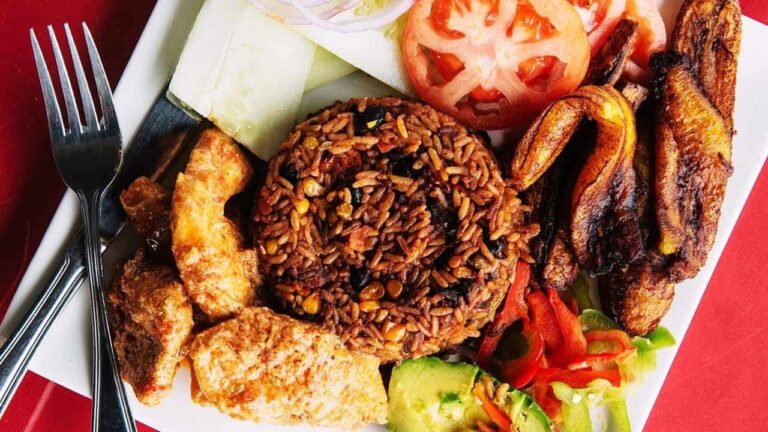Introduction: Liberian Cuisine
Liberia, a country located in West Africa, has a rich and diverse culinary heritage. Liberian cuisine is characterized by its use of local ingredients, unique spices, and flavors. The cuisine is influenced by both African and European cooking styles, making it a unique fusion of flavors.
Liberian cuisine is centered around rice, which is a staple food. Other common ingredients in Liberian dishes include plantains, cassava, seafood, and vegetables. Liberian cuisine is also known for its use of spices such as ginger, chili pepper, and coriander.
Local Ingredients and Flavors
Liberian cuisine utilizes seasonal, locally sourced ingredients to create dishes that are both flavorful and nutritious. The cuisine makes use of an array of fruits, vegetables, and herbs, including okra, eggplant, collard greens, and bitter leaf. These ingredients are used in a variety of ways, including in stews, soups, and side dishes.
Liberian cuisine also makes use of unique ingredients such as palm oil, which is used to flavor and color dishes, and smoked fish, which adds a distinctive smoky flavor to stews. The country’s coastal location also means that seafood is a common ingredient in Liberian cuisine.
Unique Ingredients in Liberian Cooking
One of the most unique ingredients in Liberian cooking is cassava. The root vegetable is used to make fufu, a starchy dish that is eaten with soup or stew. Cassava leaves are also used to make a stew that is typically served with rice.
Another unique ingredient in Liberian cuisine is bitter leaf. The leaves are used to make a soup that is typically served with fufu. The bitterness of the leaves is balanced out by the addition of other ingredients such as peanut butter and smoked fish.
Flavors and Spices in Liberian Dishes
Liberian cuisine is known for its use of spices and herbs. Ginger, chili pepper, and coriander are commonly used in dishes such as stews and soups. Pepper sauce, a spicy condiment made from chili peppers, is also a popular accompaniment to many Liberian dishes.
Other spices commonly used in Liberian cuisine include nutmeg, cloves, and cinnamon. These spices are often used in baked goods such as cakes and cookies.
Influence of Other Cultures on Liberian Cuisine
Liberian cuisine has been influenced by a variety of cultures, including African, European, and American. The cuisine has borrowed elements from neighboring countries such as Guinea, Sierra Leone, and Ivory Coast.
European influences can be seen in dishes such as jollof rice, a West African dish that is similar to Spanish paella. American influences can be seen in the use of ingredients such as peanut butter and ketchup.
Conclusion: Diversity in Liberian Cooking
Liberian cuisine is a unique fusion of flavors that reflects the country’s rich cultural heritage. The cuisine makes use of local ingredients, unique spices, and flavors to create dishes that are both flavorful and nutritious. The influence of other cultures has also contributed to the diversity of Liberian cooking, making it a truly unique culinary experience.

